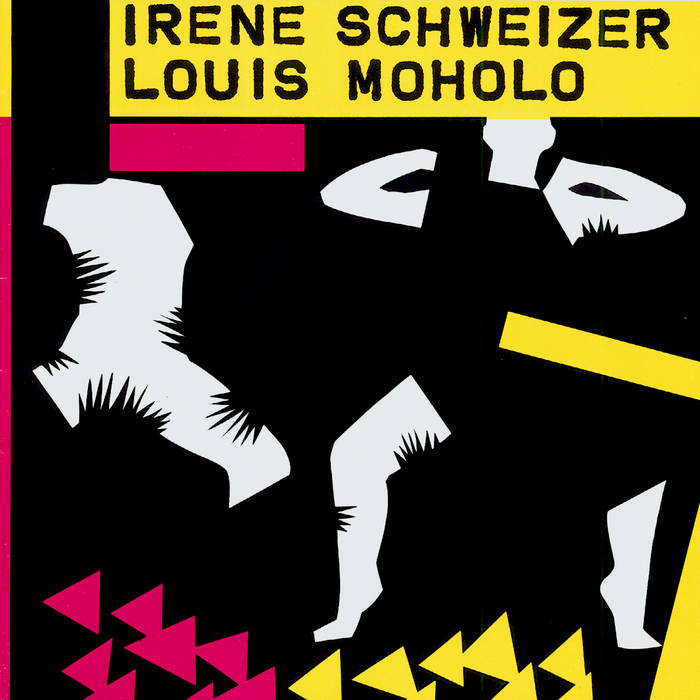
A Supportive Home for the Avant-Garde By Noah Berlatsky, March 19, 2020
By Noah Berlatsky, March 19, 2020
“In German, there’s an expression: ‘A one-day fly’—flies that live only one day,” says Swiss drummer Lucas Niggli. “And when Patrik Landolt first approached me about working with the Intakt label, he said, ‘I’m not interested in a one-day fly. I’m interested in groups, in working bands. Let’s do something for the long term.”
When Landolt talks about the long term, he’s not kidding. He founded his Swiss label Intakt in 1986. At the time, he was a journalist at the independent weekly newspaper WOZ, where he wrote about music while organizing concerts, including the Zurich festival Taktlos. “The ‘80s were a time of cultural and political awakening in Switzerland, comparable to the ‘60s,” he says. It seemed natural to, “learn the art and business of a record label in order to be independent of the major labels and to support a handful of good musicians.”
Over the course of the label’s 30-year history, Landolt has cultivated relationships with notable artists in America and Europe. One such artist is Cuban pianist and composer Aruán Ortiz, who puts it, “It is incredible how iconic figures of avant-garde jazz such as Anthony Braxton, Cecil Taylor, Andrew Cyrille, Oliver Lake, Reggie Workman, Aki Takase, Evan Parker, and others co-habit [on the label] with the names of young and adventurous musicians from Europe and the U.S. that are having an impact, such as Kris Davis, Ingrid Laubrock, Tim Berne, Sylvie Courvoisier, Jim Black, and Alexander Hawkins.”
The economics of music production have become more difficult over the years, which has presented obstacles for the label. “Music today is sold too cheaply,” Landolt says. “Streaming is a joke. Perhaps it makes some music accessible to more people. But there is hardly an innovative jazz musician or label that can finance the costs of a production with the income from streaming.”
Instead, Intakt relies on CD sales and downloads. The label has digitized virtually their entire 300-plus album catalog, making a huge range of vital documents of avant-garde jazz more accessible than ever. “A label like Intakt stands up for small islands, niches, and alternatives,” Landolt says. Below are a few of of those islands.
Landolt founded Intakt in large part to release the music of brilliant Swiss pianist Irène Schweizer, who he felt was being underserved by major labels. This 1987 release chronicles an exuberant Zurich Jazz Festival date with South African drummer Louis Moholo. “The concert became a manifestation of solidarity for the liberation of South Africa from apartheid— and against the crony-ship of the major Swiss banks with the apartheid state,” Landolt says. “You hear the energy in the hall, you hear Louis Moholo shouting: ‘Free Mandela! Free Mandela!'” Schweizer and Moholo trade percussive and discordant smears of sound on the jangling, fierce, and nearly twenty-minute final track “Exile.”
Barry Guy
Double Trouble Two

Saadet Türköz
Marmara Sea

Christian Marclay, Elliot Sharp
High Noon

Aki Takase, Alexander von Schlippenbach
So Long, Eric! Homage to Eric Dolphy

Don Byron, Aruán Ortiz
Random Dances and (A)tonalities

Pianist Aruan Ortiz and clarinetist Don Byron have played together regularly for years, but this is their first album as a duo. “My creative process was very simple for this album: listening and playing with as much focus as I would have in a live concert,” Ortiz told me. “That’s why we didn’t really do that many overdubs or play the same take several times; we didn’t want the pieces to sound over-recorded.” One highlight of the set is Ellington’s “Black and Tan Fantasy;” taken at such a sensuously slow pace, it seems on the verge of disintegrating, though it never quite does. His reinterpretation of Bach’s “Violin Partita No. 1 in B minor, BWV 1002, II. Double,” played with a delicate, melancholy romanticism, proves equally compelling.


